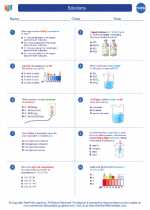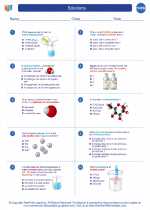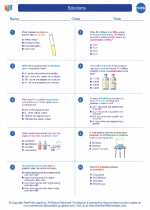Applied Force in Chemistry
In the context of chemistry, applied force refers to the force exerted on an object or substance to bring about a change in its state or properties. Understanding applied force is crucial in various areas of chemistry, including understanding chemical reactions, physical changes, and the behavior of matter under different conditions.
Types of Applied Forces
There are several types of applied forces that are important in chemistry:
- Mechanical Forces: These include forces applied through physical contact, such as pushing, pulling, or pressing on an object or substance.
- Electromagnetic Forces: These forces involve the interaction of charged particles and are important in understanding chemical bonding, intermolecular forces, and the behavior of ions in solution.
- Gravitational Force: The force of attraction between objects with mass, which is relevant in the study of physical properties of matter and the behavior of substances in different gravitational fields.
- Applied Pressure: Pressure is a force applied over an area and is crucial in understanding the behavior of gases and liquids, as well as in processes like filtration and distillation.
Applications of Applied Force in Chemistry
Understanding applied force is essential in various areas of chemistry:
- Chemical Reactions: In chemical reactions, applied force can affect reaction rates, equilibrium, and the mechanisms by which reactions occur.
- Phase Changes: Applied force plays a role in phase transitions, such as melting, freezing, boiling, and condensation.
- Mechanical Properties: Understanding applied forces is crucial in understanding the mechanical properties of materials, such as strength, elasticity, and brittleness.
- Transport Phenomena: In the study of diffusion, osmosis, and mass transfer, applied forces drive the movement of substances through different media.
Study Guide for Applied Force in Chemistry
To effectively study applied force in chemistry, consider the following key points:
- Understand the different types of applied forces and their relevance to chemical systems.
- Learn how applied force influences chemical reactions, phase changes, and the behavior of matter.
- Practice solving problems related to applied force, such as calculating pressure, force exerted, or the effects of force on a chemical system.
- Explore real-world applications of applied force in chemistry, such as in industrial processes, environmental phenomena, and material science.
- Connect the concept of applied force to other areas of chemistry, such as thermodynamics, kinetics, and quantum mechanics.
By mastering the concept of applied force in chemistry, you will gain a deeper understanding of the behavior of matter and the processes that govern chemical systems.
.◂Chemistry Worksheets and Study Guides High School. Solutions
The resources above cover the following skills:
CHEMISTRY
Matter and Its Interactions
Use mathematics and computational thinking to express the concentrations of solutions quantitatively using molarity.
Develop and use models to explain how solutes are dissolved in solvents.



